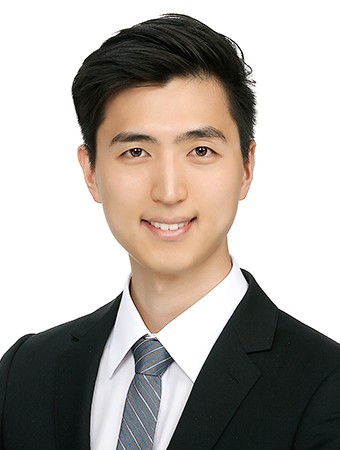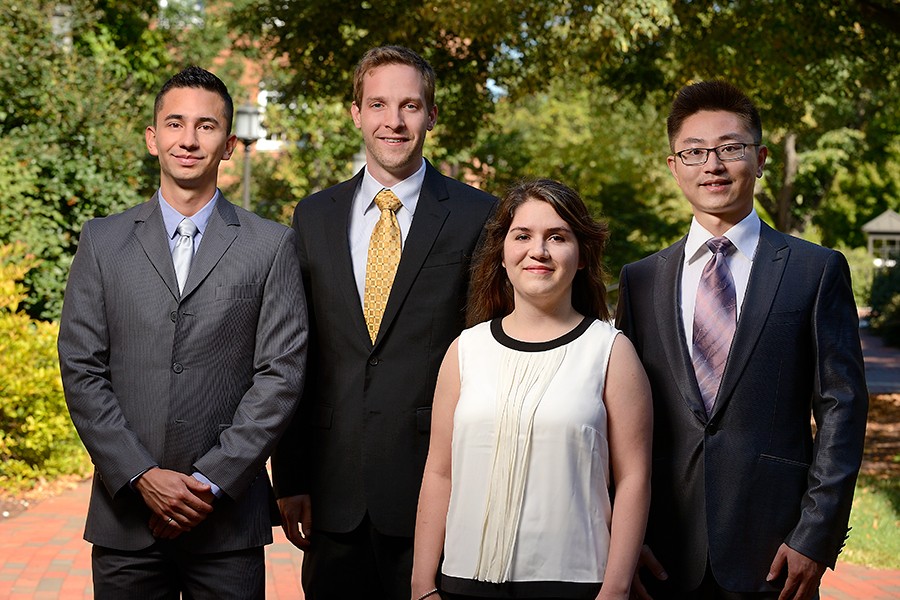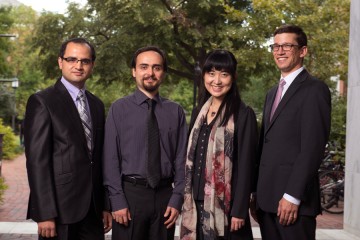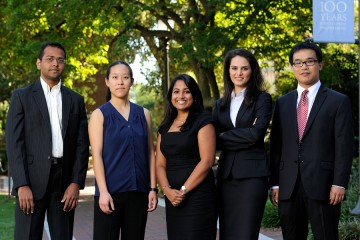Five Johns Hopkins graduate students, recently named to the 2016 class of Siebel Scholars, are each pursuing bioengineering projects that could lead to important new diagnostic and treatment advances in healthcare. The merit-based Siebel program has recognized their research skills, academic achievements and leadership qualities by providing $35,000 to each of the five PhD candidates for use in his or her final year of graduate studies.

Image caption: Dong Jin Shin
In 2000, the Siebel Scholars program was founded by the Siebel Foundation to recognize annually the most talented students at some of the world's leading graduate schools in the fields of business, computer science, bioengineering and, most recently, energy science. A key goal is to help move promising research beyond academic settings and apply it to critical worldwide challenges. More than 1,000 Siebel Scholars are active today in the program, which seeks to nurture leadership, academic achievement, and the collaborative search for solutions to the world's most pressing problems.
The 2016 Johns Hopkins honorees were among 93 students selected from prominent graduate schools in the United States, China, Italy, and France, including Harvard, Princeton, MIT, Stanford, University of Chicago, Carnegie Mellon, and Northwestern.
At Johns Hopkins, the Siebel Scholars program supports graduate students involved in bioengineering studies. Four of this year's recipients are pursuing their doctoral degrees within the university's Department of Biomedical Engineering, which is shared by the School of Medicine and the Whiting School of Engineering. A fifth is working toward a doctorate within the Department of Chemical and Biomolecular Engineering.
The deans of their respective schools choose the Siebel Scholars on the basis of outstanding academic achievement and demonstrated leadership. On average, Siebel Scholars rank in the top 5 percent of their class, many within the top 1 percent.
"Having the Siebel Foundation recognize our bioengineering program as among the nation's best is an honor," said Ed Schlesinger, the Benjamin T. Rome Dean of the Whiting School. "This year's cohort of Siebel Scholars is engaged in research in areas that hold great promise in a wide variety of fields—all of which are directed at solving critical societal problems. The Siebel Scholars program emphasizes entrepreneurship, translation, and collaboration, all of which are hallmarks of a Johns Hopkins education. We are grateful for the foundation's support."
The 2016 Johns Hopkins Siebel Scholars
Sebastian F. Barreto Ortiz, from Bogota, Colombia, completed his undergraduate studies at Lafayette College in Easton, Pennsylvania. There, he initiated a socioeconomic entrepreneurship project in Honduras that was recognized by former President Bill Clinton during the Clinton Global Initiative Conference. At Johns Hopkins, Barreto entered the doctoral program in the Department of Chemical and Biomolecular Engineering under the supervision of Sharon Gerecht, an associate professor whose team is developing human blood vessels in the lab to replace damaged or diseased vessels in patients. In Gerecht's lab, Barreto engineered the first self-standing mid-sized vascular construct (less than 1 millimeter in diameter), which could eventually connect tiny capillaries with much larger lab-grown vessels. Outside the lab, he has led several programs to generate ties among graduate students and alumni in his department. He is also a personal trainer at the Johns Hopkins Recreation Center, an avid volleyball player, and a triathlete.
Hao Dang, who grew up in the city of Changzhou in China, earned his undergraduate degree at Shanghai Jiao Tong University before beginning his PhD studies in biomedical engineering at Johns Hopkins. His emphasis has been on advanced X-ray CT imaging for diagnosis and image-guided interventions. His faculty advisors are Jeffrey H. Siewerdsen, a professor of biomedical engineering, and J. Webster Stayman, an assistant professor in the same department. Dang's research has focused on the development of a small, portable CT scanner that can easily assess possible head injuries in hospital intensive care units, as well as in external locations such as sports stadiums and military sites. Dang has also been active in the BME EDGE organization for graduate students. He served as lead organizer of the group's university-wide career fair and panel discussion, which drew more than 400 attendees. He also has volunteered as a referee at a robotics competition for Baltimore City Public Schools students.
Shadi Eshghi, who is from Iran, received her undergraduate degree from Isfahan University of Technology, located in her hometown. At Johns Hopkins, she is seeking her PhD under the supervision of Hui Zhang, an associate professor of pathology, and Xingde Li, a professor of biomedical engineering. Eshghi's research has been directed at sugar molecules called glycans, which are attached to the majority of the proteins in living cells. Glycans undergo abnormal changes in almost all human diseases and hence could give doctors an early hint that cancer metastasis, heart disease, and other health problems are imminent. Eshghi has been developing experimental and computational tools and techniques to pick up these clues using mass spectrometry. Outside the lab, Eshghi co-founded the Graduate Women Empowerment Network, or GWEN, to support and advance the careers of women graduates in the STEM (Science, Technology, Engineering and Math) fields.
David Herzfeld, a native of Grafton, Wisconsin, earned his bachelor's and master's degrees in biomedical engineering at Marquette University in Milwaukee. He has remained in this field at Johns Hopkins, pursuing his doctorate under the supervision of Reza Shadmehr, a professor of biomedical engineering and neuroscience. Herzfeld's research aims at unraveling how the cerebellum—the oldest part of the human brain—directs motor control and motor learning. His particular interest is in how limbs and eyes move. His research has determined that movement is not guided by individual neurons but by a combined response across a population of cells. He also has demonstrated that people who are learning a new task store memories of their past errors to make it easier to relearn a task at a future time. Herzfeld also engages in public service activities by volunteering as a community theatre lighting designer and by tutoring math students at Baltimore's Dunbar High School.
Dong Jin Shin was born in Seoul, South Korea, and grew up in New Zealand. He traveled to the United Stated to complete his undergraduate studies at Duke University. At Johns Hopkins, he enrolled in the biomedical engineering doctoral degree program and became a fellow at the university's Institute for NanoBioTechnology. His research in droplet magnetofluidics and biomedical instrumentation is supervised by Jeff Tza-Huei Wang, a professor of mechanical engineering and biomedical engineering. Shin's aim has been to build small, low-cost lab-on-a-chip devices that can perform diagnostic tests at a point-of-care that produce results in an hour or less. He recently unveiled a prototype that can detect the sexually transmitted disease chlamydia within 30 minutes. He believes this technology could eventually be used to detect cancer biomarkers as well as infectious diseases such as strep throat and the flu. Outside the lab, Shin has served as president of Johns Hopkins' Korean Graduate Students Association.
"It is my great pleasure to congratulate the Siebel Scholars Class of 2016 and to welcome them to this ever-growing, lifelong community," said Thomas M. Siebel, chairman of the Siebel Scholars Foundation.
Posted in Science+Technology, University News










